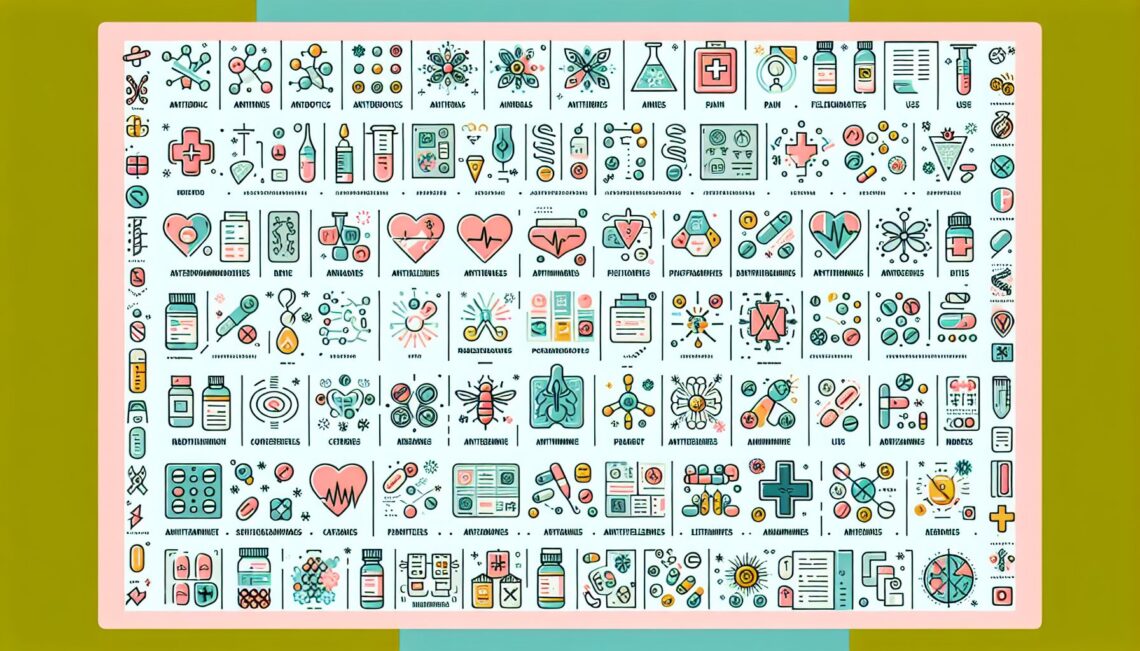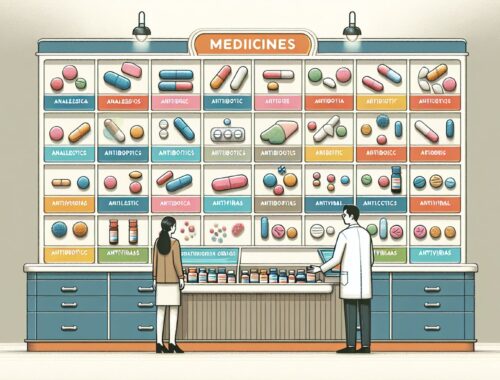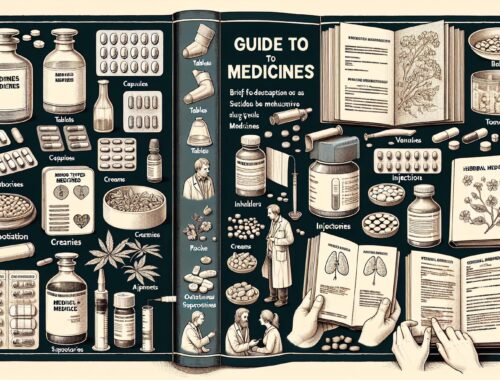
Understanding the Different Types of Medicines: A Comprehensive Guide
Medicines play a crucial role in the field of healthcare. They help alleviate symptoms, cure diseases, and improve our overall well-being. While visiting a pharmacy or consulting with a healthcare professional, you may have noticed that medications are classified into various types. In this article, we will explore the different categories of medicines and their respective purposes. Understanding these classifications will provide you with valuable insights into how different medications work to keep us healthy.
The Main Categories of Medicines
1. Prescription Medicines
Prescription medicines are drugs that can only be obtained with a medical prescription. They are commonly prescribed by healthcare professionals such as doctors, nurse practitioners, or specialists. These medications are carefully regulated due to their potential risks and often require specific guidance or monitoring during their usage. Prescription medicines are tailored to individual needs, taking into account factors such as age, weight, medical history, and other ongoing treatments.
2. Over-the-Counter (OTC) Medicines
Unlike prescription medicines, over-the-counter (OTC) medicines can be purchased directly from pharmacies or stores without a prescription. They are labeled for self-use and are considered safe and effective when used as directed. OTC medicines are commonly used for various common conditions such as headaches, common colds, allergies, and heartburn. However, it is essential to consult a healthcare professional or read the labels carefully to ensure proper usage and avoid potential interactions with other medications.
3. Generic Medicines
Generic medicines are equivalents of brand-name medicines without the branding and patent protection. These medications offer the same quality, safety, dosage, and strength as their brand-name counterparts at a more affordable price. The generic version of a drug becomes available once the original patent expires. Although the cost difference does not affect the medication’s effectiveness, certain individuals may exhibit sensitivity to specific formulations or fillers present in generic medications. It is always advisable to discuss any concerns with a healthcare professional.
4. Herbal and Dietary Supplements
Herbal and dietary supplements are natural or plant-based products that are generally available without a prescription. They are commonly used to support general health and well-being. It is important to note that these supplements are not medications but rather complementary products intended to supplement a healthy lifestyle. While they can offer potential benefits, their safety and efficacy are not regulated as strictly as prescription or OTC medicines. Therefore, it is wise to consult a healthcare professional before integrating them into your routine, especially if you have any existing medical conditions or are taking other medications.
5. Vaccines
Vaccines are a unique category of medicines that help prevent infectious diseases by stimulating an immune response. They contain weakened or killed microorganisms or components of these microorganisms, introducing them into our bodies without causing harm. This prompts our immune system to produce antibodies that provide long-term protection against the particular disease. Vaccines have played a vital role in preventing epidemics and have significantly contributed to public health worldwide.
In Conclusion
Understanding the different types of medicines is crucial for responsible self-care and making informed decisions about our health. Prescription medicines provide tailored treatments under professional guidance, while over-the-counter medicines offer immediate relief for common conditions. Generic medicines provide affordable alternatives without compromising quality. Herbal and dietary supplements offer supplementary support to a healthy lifestyle, and vaccines are essential for preventing infectious diseases. By familiarizing ourselves with these categories, we can make educated choices that promote our well-being and contribute to a healthier future.
You May Also Like

Understanding the Different Types of Medicines
February 28, 2024
A Guide to the Different Types of Medicines
January 21, 2024

